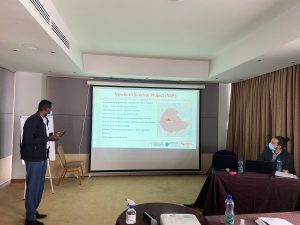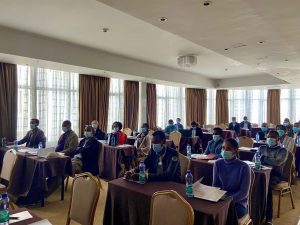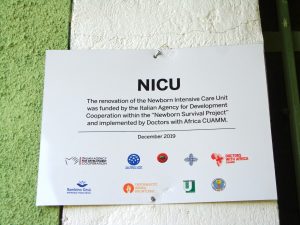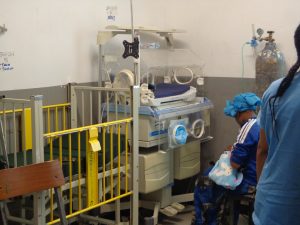
On the 16th and 17th of September, the final results dissemination workshop of the Newborn Survival Project took place.
The Newborn Survival Project: quality and innovation for an increased access to neonatal care in Ethiopia started in June 2018 and is coming to its end in September 2021.
The project’s overall objective has been to improve the quality and accessibility of Neonatal Intensive Care Unit services (NICUs) in three hospitals: St. Paul Hospital Millennium Medical College in Addis Ababa, St. Luke Catholic Hospital and College of Nursing and Midwifery in Wolisso, and Tulu Bolo General Hospital. The project then expanded to 15 kebele in 5 different woredas, actively involving the communities in awareness-raising activities on good newborn care practices.
The project aimed at reaching the following specific objectives:

• Improve clinical-organizational quality and use of the NICU services in the three selected hospitals;
• Increase the availability of quality health and technical personnel for the NICU of the three hospitals;
• Improve the availability of standard and evaluation tools for the quality of neonatal care.
Supported by the Italian Agency for Development Cooperation (AICS) and implemented by the civil society organization (CSO) Doctors with Africa CUAMM in partnership with the Federal Ministry of Health (FMoH), the Ethiopian Catholic Church – Social and Development Commission (ECCSDCO) and Oromia Regional Health Bureau, South West Shoa Zone Health (SWSZHD), the project also saw the involvement of technical partners namely: Ethiopian Paediatric Society – EPS responsible for the training and supervisions, Ospedale Pediatrico Bambino Gesù (OPBG), Informatics without Borders (Informatici senza Frontiere – ISF) and Università degli Studi di Tor Vergata – Dipartimento Pediatrico Universitario-Ospedaliero (DPUO TV).

On the first day of the event, the project and particularly its achievements* were presented:
• Reduction in neonatal mortality in the 3 NICUs;
• More than 14,500 sick newborns were admitted in the NICU of the 3 hospitals;
• 3 NICU manuals and 1 NICU biomedical equipment manual produced;
• 53 nurses and 56 biomedical engineers trained;
• 26 health extension workers and 575 women development army trained;
• 1 digitalized information system for pathological infant developed;
• Construction of NICU building in St. Luke and rehabilitation of Tulu Bolo NICU;
• 158 community meetings and 51,652 women sensitized on newborn care;
• Continuous provision of NICSU equipment and drugs in the 3 hospitals.

On the second day of the event, visits to the Tulu Bolo and Wolisso structures were organized to see the interventions made during the three years.
The Director of AICS Office in Addis Ababa, Isabella Lucaferri, during her welcoming speech, pointed out the importance of the collaboration among the actors involved that made possible the activities progress, in addition, she added:
– “By sustaining the project AICS demonstrates once again its commitment towards the health sector, a priority area for us; along the years, the Italian development cooperation has been supporting numerous initiatives in order to contribute in bettering the Ethiopian Health Care System and making it more inclusive and accessible to all citizens.”
* Data Jun 2018-Jul 2021
